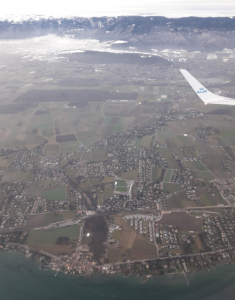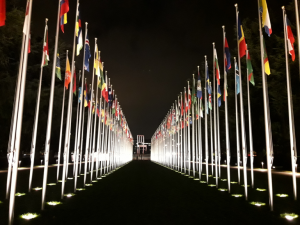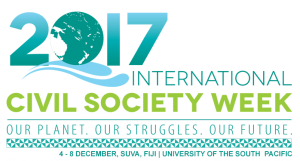IFLA was lucky enough to be present at a breakfast meeting organised by the European Internet Forum earlier this month, hosted by Julie Ward MEP. Please find below the transcript of our intervention:
I have one of the ‘difficult’ SDGs to talk about – Peace, Justice and Strong Institutions. SDG 16.
Difficult in that it wasn’t until late in the process that it was actually included in the 2030 agenda. But also difficult in that it is cross-cutting.
It is the SDG that talks about peace and good governance, as well as the right of citizens to access the information they need to learn, grow, innovate, and simply take better decisions about their lives. It therefore touches on agricultural extension services, public health information, broader opportunities to learn and find work, innovation, smart systems, and even evidence-based policy making.
It is an enabler of development – in all of the areas we have discussed today – rather than an end in itself.
It can also all too easily be taken for granted, because it covers things that you don’t notice, at least when they’re working well.
Clearly with less than half of the world’s population online, we face a challenge in giving people the possibility to access, engage with and apply information. What is perhaps more frustrating still is that majority of the unconnected do in fact live in areas covered by mobile networks, but a mixture of cost, and a lack of confidence, skills, and relevant content keeps them offline.
The need for a free entry-point to the Internet, with tailored support to help people make the most of the possibilities – not just an app – is clear.
Research indicates that libraries, with dedicated staff, a community focus, and the offer of other valued services in parallel, provide this. They are public, without being governmental. They can be shown to be more welcoming to marginalised groups. And they enjoy the trust that allows users to search for the most sensitive – but also the most valuable – information.
A number of reports have suggested that providing public access – through community anchor institutions such as libraries, schools and health centres, much as the EU itself is looking to do with WiFi4EU, offers a highly cost-effective way of doing this.
This is what led the Colombian government to launch the Libraries for Peace initiative this year.
After decades of war, there was a clear need to help the citizens of formerly rebel-controlled areas – and in particular ex-fighters – re-integrate, and find ways to empower themselves in a post-conflict world. For years, these regions hadn’t had much in the way of public services – education, health, culture. Their ties with the government were – understandably – almost non-existent.
The government chose to start this process of reconnection through libraries. It bought 20 mobile libraries, using the Ideas Box developed by French NGO Bibliothèques Sans Frontières, and deployed them to the Verdales region. For many, they were the first public service – other than the military – with which they had ever been in contact.
These libraries offer Internet access, or at least access to Internet content – an important step forwards in regions that have been cut off for years. Where connections are less good, an ‘Internet in a Box’ model is followed, with servers taken to the nearest town, and updated every week or so with new information. Courses are offered, educational materials provided, but so too is a community space where people can work together to apply the information accessed.
They are also making more direct contributions to peace building – giving access to copies of the final text agreement, and working with people, many of whom have suffered traumas, to create personal archives with a view to reconciling themselves with the past. The national library association, conscious of this potential, has been ready to step up and think actively about how they can contribute to peace.
More broadly, libraries are also engaging in innovative projects to develop access. Working with government and coffee producers, it has been possible to access to unused spectrum – TV White Space – and so bring Internet access to some of the most remote regions of the country. Government, business and libraries working together to benefit users.
There are other exciting initiatives in the same country – again with government, libraries in Medellin have installed pollution censors, and are offering people the data literacy training needed to understand the information they produce. This is not only helping the government’s own efforts to track particulate matter, but engaging citizens in policy issues.
These are only examples from Colombia, but around the world, there are so many similar ones.
As a trusted entry point to the Internet, as a hub for local connectivity, as a physical venue for getting to grips with the virtual world, as a platform for collaboration with other actors from all sectors, libraries have a firmly recognised potential to help ICT really work for development.



